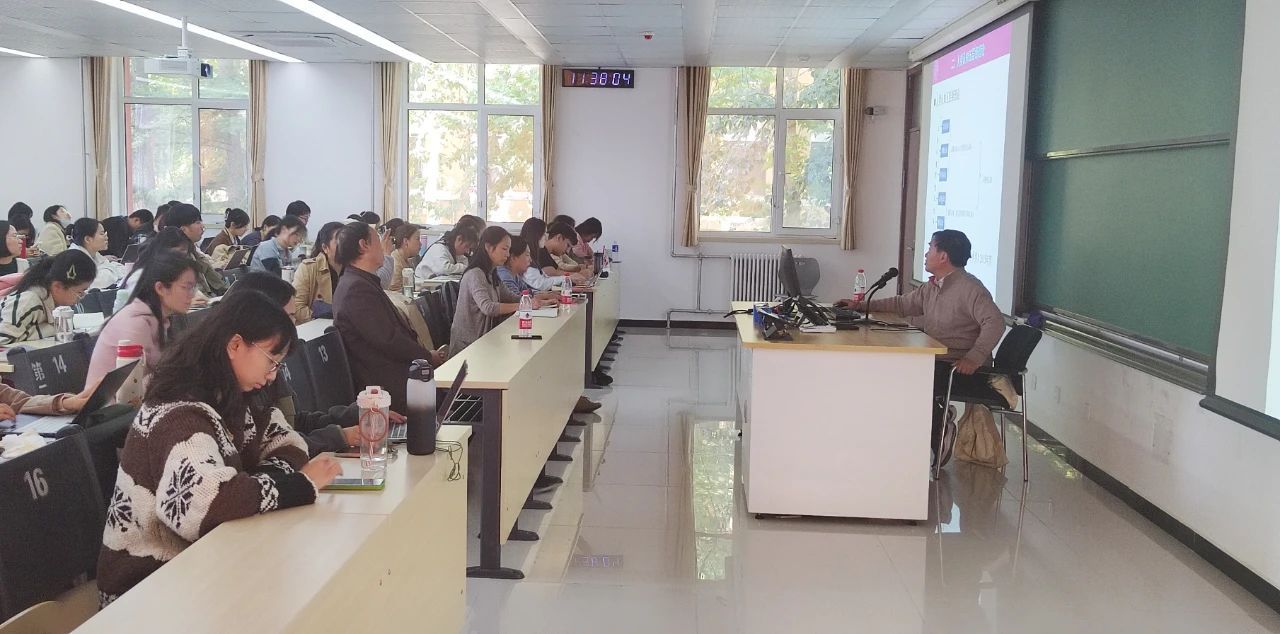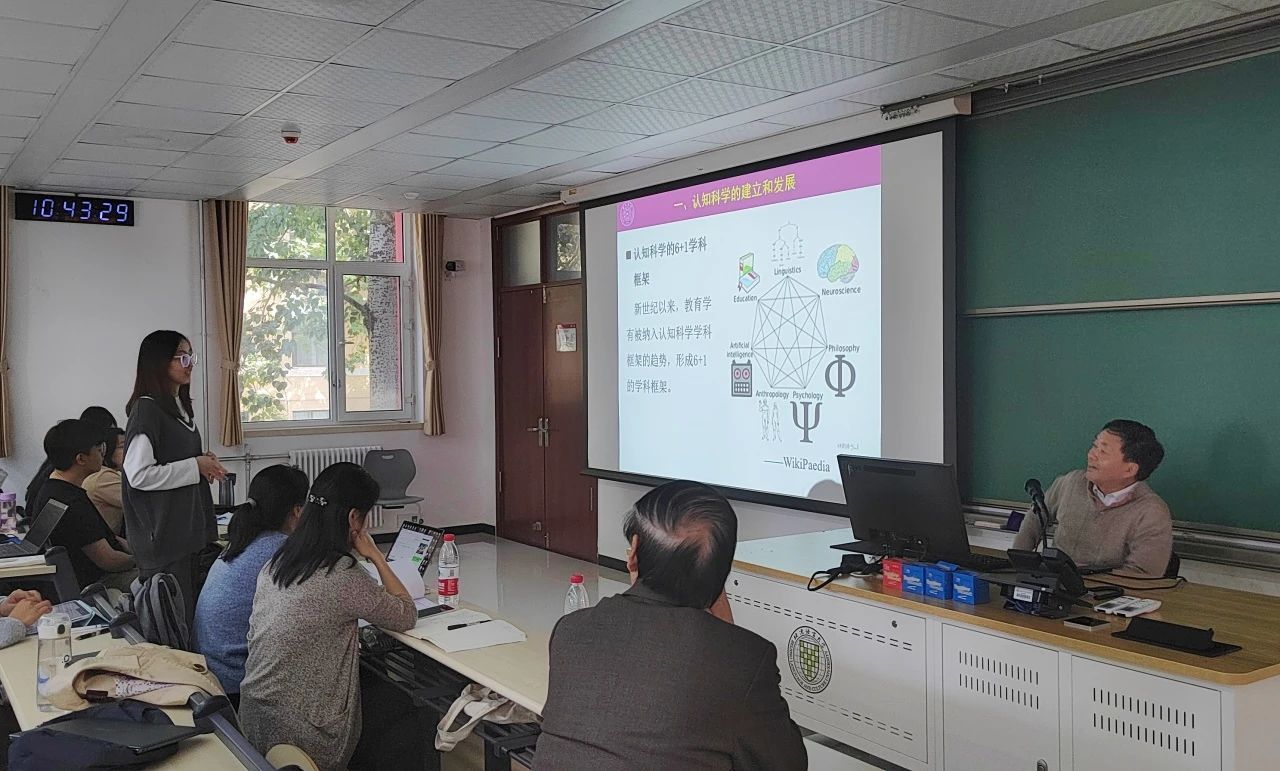On October 25, 2023, at the invitation ofCenter for the Cognitive Science of Language, Professor Cai Shushan, Director of the Center of Psychology and Cognitive Science at Tsinghua University, and doctoral supervisor, gave an academiclectureentitled“Scientific Research and Discipline Construction of Cognitive Science”. Thelecturewas the seventh lecture in the“Fifth Language Acquisition, Cognition and Brain Science Academic Forum”series. Thelecturewas moderated by Deputy Director Jiang Rong, and more than 100 faculty and students participated init.

First of all, Professor Cai Shushan introduced the history and logical basis of cognitive science’sestablishment and development, and systematically analyzed the characteristics of disciplinary crossover and comprehensive development trends of cognitive scienceaccording tothe initial framework ofsix disciplinesto“6+1”disciplinary framework. He mentioned that the establishment of the 5-level theory of human cognition (Cai Shushan, 2015) established the single research object and special research methods of cognitive science, transforming it from an interdisciplinary field into a single discipline.

Secondly, the development stages of Chinese cognitive science were introduced, namely scientific research, discipline construction, and education teaching, with fruitful results achieved in each stage of development. Professor Cai also used academic papers from research areas such as language cognition, thought awareness(including artificial intelligence), and cultural cognition as examples to explain how to apply the principles and methods of cognitive science to research on major problems.
Finally, Professor Cai Shushan expounded on the relationship between scientific research and disciplinary construction, pointing out that scientific research is a prerequisite for disciplinary construction, and the disciplinary construction of cognitive science is an inevitable result of cognitive science research.
Professor Cai’s academic report was substantial, and the atmosphere was relaxed and pleasant, deepening the understanding of cognitive science for our university faculty and students, and greatly expandingouracademic horizons and research ideas.